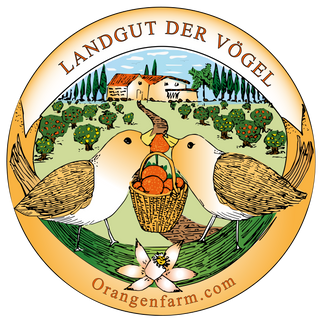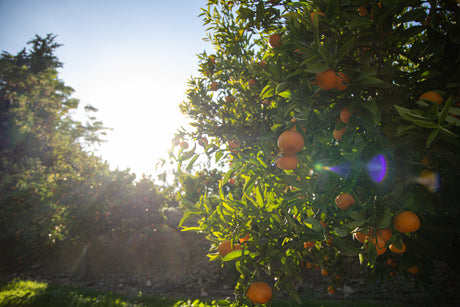Sweet balls from Portugal: homemade Beijinhos and Brigadeiros with coconut flakes
My first Beijinho was a minor revelation. I was invited to a friend's house in Lisbon, and on the table was a plate full of small white balls, beautifully arranged in praline molds, each decorated with a carnation. At first, I thought they were simply coconut pralines—but the flavor was intense, velvety, and yet pleasantly light. Beijinhos , I was told with a smile—little kisses of coconut and condensed milk. And right next to them: dark balls with chocolate sprinkles—the famous Brigadeiros .
Since then, they have become as much a part of Portugal for me as Pastéis de Nata or a good espresso after lunch.
In this post, I'll show you a simple recipe for Beijinhos and tell you what desiccated coconut is all about – an ingredient that is surprisingly versatile in Portuguese cuisine.
What are Beijinhos?
Beijinhos – Portuguese for "little kisses" – are traditional sweets that originated in Brazil but have long since found their way into Portuguese kitchens and cafés . No wonder, because they're not only quick to make but also wonderfully versatile. Especially in Portuguese families with Brazilian or Cape Verdean backgrounds, they're an integral part of celebrations, birthdays, and holidays.
They consist of just a few ingredients: sweetened condensed milk, desiccated coconut, and a little butter – that's the base. Traditionally, each ball is decorated with a clove, which not only looks pretty but also adds a subtle hint of aroma.
Coconut flakes in Portuguese cuisine
Although Portugal tends to conjure up images of olive oil and fish, coconut also has its place, especially in desserts. Many Portuguese recipes, especially from the southern regions and islands like Madeira, use desiccated coconut : be it in bolo de coco (coconut cake), coconut macaroons, or pastry fillings.
Desiccated coconut is made from the dried, grated flesh of the coconut. It brings a natural, tropical flavor that pairs well with sugar, cinnamon, or lemon—all classic Portuguese pastries.
A plus: Coconut flakes have a long shelf life, are easy to store (in the refrigerator or tightly closed at room temperature) and add not only flavor but also texture.
Recipe: Beijinhos like in Portugal
Ingredients for approx. 15-20 pieces:
- 1 can of sweetened condensed milk (approx. 400 g)
- 1 tbsp butter
- 100 g desiccated coconut (+ a little more for rolling)
- (optional) 1 tsp vanilla extract or a dash of lemon juice
- Carnations for decoration (classic Portuguese!)
Preparation:
-
In a small saucepan, heat the condensed milk, butter and desiccated coconut over medium heat, stirring constantly.
-
Simmer the mixture until it thickens and separates from the bottom of the pot (approx. 10-15 minutes).
-
If you like, you can now stir in vanilla or a little lemon juice for a fresh touch.
-
Allow the mixture to cool, preferably in the refrigerator for 30–60 minutes.
-
Form small balls with lightly greased hands and roll them in the remaining coconut flakes.
-
Put a carnation in each ball – classic, stylish and with symbolic meaning (more on that in a moment).
Tip: The Beijinhos will keep in the fridge for several days – perfect for preparation!
Brigadeiros: The chocolate counterpart
Brigadeiros are the chocolate counterpart to beijinhos—just as simple, just as popular. They originate from Brazil, but are also a hit in Portugal, especially at children's birthdays and family celebrations.
Recipe for Brigadeiros (approx. 15–20 pieces):
- 1 can of sweetened condensed milk (approx. 400 g)
- 1 tbsp butter
- 2 tbsp unsweetened cocoa powder (real cocoa, not Kaba!)
- Chocolate sprinkles for rolling
Preparation:
-
Heat the condensed milk, butter and cocoa over medium heat while stirring.
-
Stir until the mixture is thick and chewy (10–15 min).
-
Let cool, form into balls, and roll in sprinkles. Done!
Tip: For a more sophisticated flavor, use dark chocolate instead of cocoa powder for an intense flavor. Flavors like cinnamon, chili, or espresso also complement this flavor nicely.
The meaning of the carnation
One detail that is always present in Portuguese Beijinhos is the small carnation in the center. In Portugal, the carnation not only has culinary value – it is also a symbol of peace and freedom. Anyone familiar with Portuguese history knows that the "Carnation Revolution" of 1974, which ended the authoritarian regime without bloodshed, is a pivotal moment in the country's history. Since then, the carnation has also been deeply rooted in culture – which makes the small decorative accent on the Beijinho all the more meaningful.
When are Beijinhos served in Portugal?
Although their origins lie in Brazil, Beijinhos have long been a part of Portuguese celebration culture. Especially at:
- Birthdays (especially children's)
- Baptisms and communion celebrations
- Christmas and New Year's Eve
- Coffee tables with friends or family
They're easy to prepare, decorative, and popular with all ages. They're often served alongside other small sweets like broinhas de mel or queijadas.
Global, but with a Portuguese soul
In a globalized cuisine, ingredients like desiccated coconut are now a natural part of recipes around the world. What I particularly like about beijinhos is the blend of tropical flair and local tradition . They bring something light and summery to the plate without being overpowering—perfect for afternoon espresso or a sweet ending to a family meal.
And who says you can't get creative with the recipe? A little lime zest, a hint of cinnamon, a drop of rum—Beijinhos leave room for personal variations.
Conclusion
Beijinhos are more than just a little sweet—they're a piece of Portuguese (and Lusophone) soul , wrapped in a delicate coconut ball. They combine the warmth of Portuguese culture with tropical flavor and are ideal for those who love simple recipes with a big impact.
Next time you're expecting guests—or want to treat yourself—give it a try. I promise: These little kisses will make you happy. 💋



